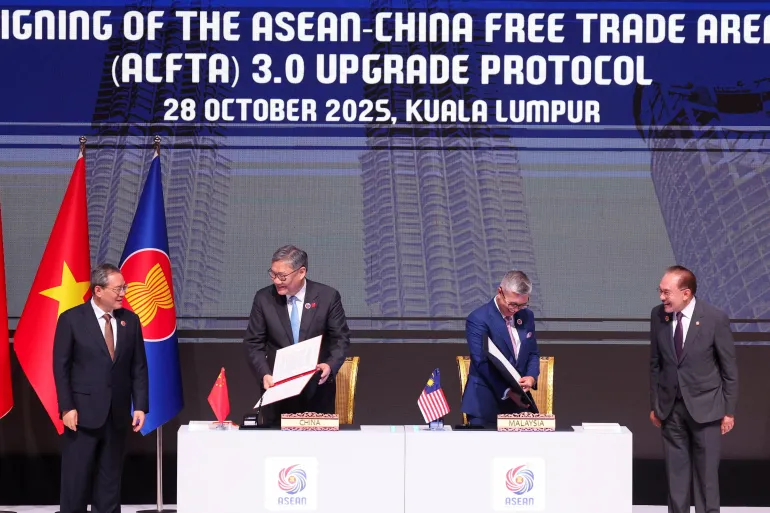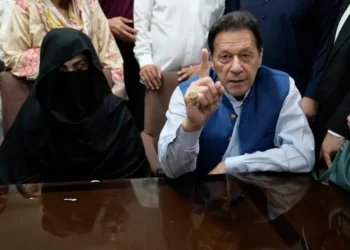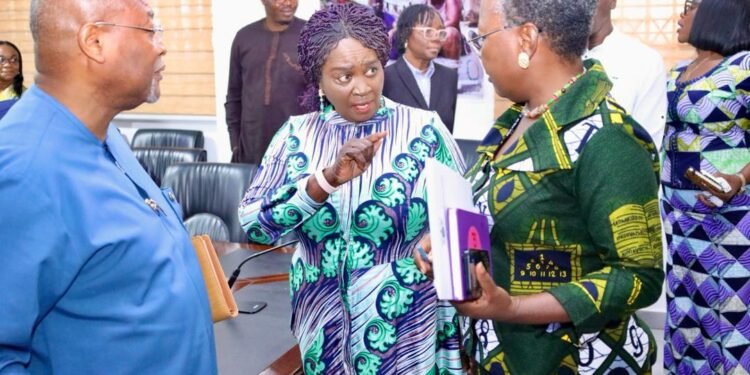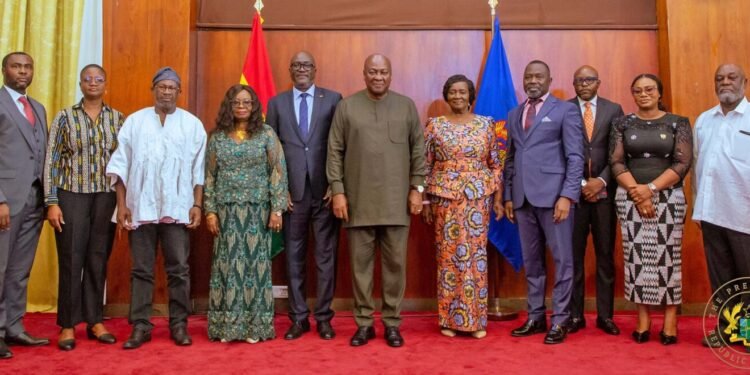China and the Association of Southeast Asian Nations (ASEAN) have upgraded their free trade agreement.
The trade pact was signed on the sidelines of the 47th ASEAN Summit in Kuala Lumpur, in a ceremony witnessed by Chinese Premier Li Qiang and Malaysian Prime Minister Anwar Ibrahim.

According to China’s State Council, the “3.0 version” of the deal will broaden collaboration on “infrastructure, digital and green transition, trade facilitation and people-to-people exchanges.”
It is the third revision of the long-standing agreement, which was first signed in 2002 and came into force in 2010. The free trade area covers a combined market of more than 2 billion people and lowers tariffs on goods and boosting flows of services and investment.
The 11-member ASEAN and China have become each other’s largest trade partners in recent years, thanks to the China Plus One supply chain that emerged after Trump’s trade war with China in 2018.
Trade between China and ASEAN has already hit $785bn in the nine months of 2025, up 9.6 percent year-on-year. Much of this trade reflects integrated manufacturing supply chains, but it also increasingly includes finished goods from China that are destined for Southeast Asian consumers.
In remarks to the ASEAN summit, Li praised China and the bloc’s deepening trade relationship, and spoke of his expectation for “expanded and higher-quality economic cooperation” under the upgraded trade pact.
Li urged China and ASEAN countries to unite and strengthen themselves more resolutely, fend off external disruptions, and defend their legitimate rights and interests through mutual reliance and coordinated actions.
He also called on both sides to gather greater synergy, and promote steady economic growth through meeting each other’s needs and deepening cooperation.
“Cooperation in various fields has yielded fruitful results, trade volume continues to grow steadily, and ASEAN governments have promoted even closer people-to-people exchanges.”
Li Qiang
Li stressed “mutual reliance” between China and ASEAN members, calling them “good neighbors and good brothers that are close in geography, culture and sentiment.”
China Takes Aim At Trump Tariffs

In his remarks, Li also took aim at Trump’s tariffs, which have disrupted global trade, and marked the most protectionist policy pursued by the US government since the 1930s.
“Unilateralism and protectionism have seriously disrupted the global economic and trade order. External forces are increasingly interfering in our region, and many countries have been unfairly subjected to high tariffs.”
Li Qiang
The US President also attended the ASEAN summit on Sunday, and is due to meet with Chinese President Xi Jinping in South Korea later this week.
While at ASEAN, Trump signed trade deals with Cambodia and Malaysia, as well as framework agreements with Thailand and Vietnam, highlighting his preference for bilateral trade deals hammered out in one-on-one discussions. The deals appeared to finalise Trump’s “reciprocal tariff” rate on the four countries, which were set earlier this year at 19 to 20 percent.
Tariffs and trade barriers are also expected to headline Trump’s meeting with Xi, after US Treasury Secretary, Scott Bessent announced that the two sides had reached a “framework agreement” on tariffs this week.
Earlier this month, Trump had threatened to impose a tariff of 100 percent on Chinese goods by November 1, after China strengthened export controls on rare earth minerals. Bessent was reported as saying that the framework agreement should help both sides “avoid” a tariff hike.
READ ALSO: Ghana Set to Triple Road Infrastructure by 2047 – a Smarter Transport Network























